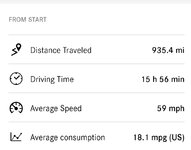Readytoride
Well-Known Member
- Region
- USA
- City
- Virginia
We are still in the early stages of adopting electric cars over gas powered cars. The infrastructure is moving fast to support EVs on highways and interstates and stop-and-charge facilities in public places. What hasn't been addressed as much as it should be, is the ability for people who rent apartments, or live in condos, or live in high-rises, to have on site infrastructure for supporting electric cars. And that is only because the percentage of EVS at the moment is very small, and not at all at the point where it would be financially advantageous for apartments or condos to start retrofitting. They are actually going to have to be pushed, not only by their clients and owners, but by local and state government to have facilities available. It's going to take a whopping amount of money to have these private charging facilities put in place. But it will be done, because progress doesn't move backwards. And places that can advertise that they have charging facilities, or have outlets available at each parking space that will support a Level 1 or 2 EVSE, have a bigger market for choosing to rent from them.Recently read an newspaper article re: How renters deal with EVs. Given they have no “home” in which to charge, they are at the mercy of universal charge stations that renters bemoan as always in use.
Right now, most renters that have EVs that need to go to a public Level 2 or Level 3 are really no different from renters who have gas cars that have to go to gasoline stations to fill up. In the coming years this will change. It's just going to take a matter of time, and sometimes a matter of government, before rentals and condo owners get the same type of instant gratification that homeowners have in just plugging in at home.
Also, today's EVs are being designed with longer range batteries that will allow someone who has a shorter commute, or only uses their car to run around locally in town, to go for days between charging. So quite possibly these people will only need to hit up a charger once or twice a week.
Again, the change to the infrastructure is moving extremely fast. I am looking at it from the perspective of one who has owned an EV for 4 years when there really was a scarcity of public EV support systems outside of Tesla's amazing and well thought out, albeit proprietary, infrastructure, and can see how much has been changed , improved, and expanded to add the support system needed for electric vehicles.


